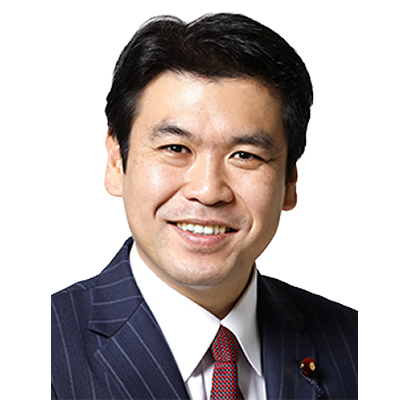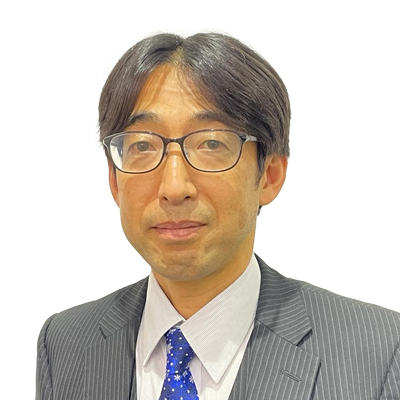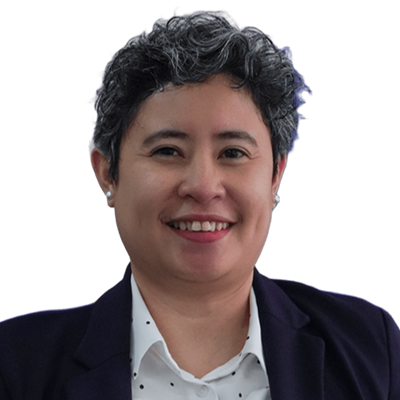APRSAF-31
November 18-21, 2025
Cebu Island, Philippines 

APRSAF-31
November 18-21, 2025
Cebu Island, Philippines 
November 17, Monday
13:00 - 16:30
*Closed Session*
November 18, Tuesday
09:30
09:00
09:30 - 15:30
Enhancement of Space Capability Working Group
special cooperation with JICA
17:30
17:30 - 20:00
November 19, Wednesday
09:30
09:00
09:30 - 15:30
Space Policy and Law Working Group
Enhancement of Space Capability Working Group
joint session
November 20, Thursday
09:00
09:00 - 09:05


Philippine Space Agency (PhilSA), PHILIPPINES
09:05
09:05 - 09:10


MATSUMOTO Yohei
Minister of Education, Culture, Sports, Science and Technology (MEXT), JAPAN
09:10
09:10 - 09:20

General Co-Chair
Officer-in-Charge
Philippine Space Agency (PhilSA), PHILIPPINES


General Co-Chair
Mr. FURUTA Hiroshi
Deputy Director-General of the Minister's Secretariat (in charge of the Research and Development Bureau)
Ministry of Education, Culture, Sports, Science and Technology (MEXT), JAPAN
09:20
09:20 - 09:25
09:25
09:25 - 09:30

ExCom Chair
Director, International Relations and Research Depatment
Japan Aerospace Exploration Agency (JAXA), JAPAN
09:30
09:30 - 10:00
10:00
10:00 - 11:00
“Regional Perspectives on Space Ecosystems in Action”
[Content]
As space becomes an increasingly strategic domain driven by national interest and socioeconomic development, regional space agencies and other international institutions continue to play a vital role in the space ecosystem in expanding its stakeholders, sharing resources, and attracting interest from new space entrants and the private sector for collaboration. The space ecosystem is an interconnected network that encompasses a diverse range of actors, such as government agencies, academic institutions, private sector, and civil society, which integrate space science and technology into sectors like agriculture, disaster resilience, and infrastructure. These are reflected in upstream efforts like satellite development and launch capabilities, supporting the growth of the manufacturing and electronics industries. While downstream activities may include the utilization of Earth Observation data for applications in environmental monitoring, food security, and weather forecasting. Moreover, initiatives to engage citizen scientists are also implemented to provide support in space-related activities and sustain their interest in Science, Technology, Engineering, and Mathematics (STEM).
This interactive panel session will delve into the unique contexts of various regional space agencies and international institutions, such as the Japan Aerospace Exploration Agency (JAXA), European Space Agency (ESA), the ASEAN Sub-Committee on Space Technology and Applications (SCOSA), and the United Nations Office for Outer Space Affairs (UNOOSA). Representatives from these agencies will discuss and contextualize the growth of their space ecosystem and share plans on how these can be applied inter-regionally.

Moderator
Dr. Joel Joseph S. Marciano, Jr.
Vice President for Research and Innovation
University of the Philippines
11:00
11:00 - 11:50
This session aims to introduce the latest overall space activities from each country and region.

Moderator
Director, International Relations and Research Depatment
Japan Aerospace Exploration Agency (JAXA), JAPAN

Distinguished Scientist & Director, Space Applications Centre (SAC)
Indian Space Research Organisation (ISRO), INDIA

Dr. Muhammad Rokhis Khomarudin
Head of Research Center
Research Center for Geoinformatics
National Research and Innovation Agency (BRIN), INDONESIA


Mr. WATANABE Atsushi
Director-General for International Cooperation
National Space Policy Secretariat, the Cabinet Office, JAPAN

Director of the Data Reception and Distribution Division
Malaysian Space Agency (MYSA), MALAYSIA
11:50
11:50 - 13:00
13:00
13:00 - 14:20

Deputy Director General for Space Operations, Infrastructure, and Industry
Philippine Space Agency (PhilSA), PHILIPPINES


Jiyeon Lee
Assistant Director of International Affairs Division
Korea AeroSpace Administration (KASA), REPUBLIC OF KOREA

Deputy Director (Strategy and Policy)
Office for Space Technology & Industry (OSTIn) ,SINGAPORE

Deputy Executive Director
Geo-Informatics and Space Technology Development Agency (GISTDA), THAILAND

Head of Partnerships and International Relations
UAE Space Agency (UAESA), UNITED ARAB EMIRATES

NASA Asia Representative
National Aeronautics and Space Administration (NASA),
UNITED STATE OF AMERICA
14:20
14:20 - 14:40
14:40
14:40 - 16:10

Satellite Applications for Societal Benefit Working Group (SAWG)
Director, Space Information Infrastructure Bureau
Philippine Space Agency (PhilSA), PHILIPPINES

Sentinel Asia
Group Head, Urban Studies and Applications Group
Indian Space Research Organisation (ISRO), INDIA

Enhancement of Space Capability Working Group (SCWG)
Marc Caesar R. Talampas, Ph.D.
Director, Space Technology Missions and Systems Bureau
Philippine Space Agency (PhilSA), PHILIPPINES


Space Education for All Working Group (SE4AWG) / Poster Contest
Dr. Jasmine Angelie V. Albelda
Chief Science Research Specialist, Space Education and Scholarships Division
Philippine Space Agency (PhilSA), PHILIPPINES

Space Frontier Working Group (SFWG) / Kibo-ABC Initiative
Director, Space Science Missions Bureau
Philippine Space Agency (PhilSA), PHILIPPINES

Space Policy and Law Working Group (SPLWG)
Director, Space Policy and International Cooperation Bureau
Philippine Space Agency (PhilSA), PHILIPPINES


National Space Legislation Initiative (NSLI)
Atty. Giovani Concepcion
Chief of Space Policy and Legal Affairs Division
Philippine Space Agency (PhilSA), PHILIPPINES

Space Industry Connect (SIC)
Manager, Strategic Planning and Industrial Promotion Division
Business Development and Industrial Relations Department
Japan Aerospace Exploration Agency (JAXA), JAPAN
16:10
16:10 - 16:15
18:00
18:00 - 20:00
@ Shangri-la Mactan Cebu - Beachfront
November 21, Friday
09:00
09:00 - 10:00
Application of space technology to social issues (disaster prevention) in the Asia-Pacific region
“Future Prospects of Disaster Management in the APAC Region”
[Content]

Moderator
Associate Professor, Department of Geodetic Engineering
University of the Philippines

Director, Space Information Infrastructure Bureau
Philippine Space Agency (PhilSA), PHILIPPINES

Deputy Executive Director
Geo-Informatics and Space Technology Development Agency (GISTDA), THAILAND

Associate Director, EO Applications & DMS Programme Office
Indian Space Reserch Organisation (ISRO), INDIA
10:00
10:00 - 10:10
10:10
10:10 - 11:10
Development of Space Industry Professionals in the Asia-Pacific region
“Development of Space-Related field professionals and promotion of Space Economy”
[Content]

Senior Advisor
Japan International Cooperation Agency (JICA), JAPAN

Director, Space Science Missions Bureau
Philippine Space Agency (PhilSA), PHILIPPINES
11:10
11:10 - 12:00
[Content]


Co-Moderator
Mr. FURUTA Hiroshi
Deputy Director-General of the Minister's Secretariat (in charge of the Research and Development Bureau)
Ministry of Education, Culture, Sports, Science and Technology (MEXT), JAPAN

Distinguished Scientist & Director, Space Applications Centre (SAC)
Indian Space Research Organisation (ISRO), INDIA

Dr. Muhammad Rokhis Khomarudin
Head of Research Center
Research Center for Geoinformatics
National Research and Innovation Agency (BRIN), INDONESIA

Director of the Data Reception and Distribution Division
Malaysian Space Agency (MYSA), MALAYSIA


Jiyeon Lee
Assistant Director of International Affairs Division
Korea AeroSpace Administration (KASA), REPUBLIC OF KOREA

Deputy Executive Director
Geo-Informatics and Space Technology Development Agency (GISTDA), THAILAND

Head of Partnerships and International Relations
UAE Space Agency (UAESA), UNITED ARAB EMIRATES
12:00
12:00 - 13:00
*Participants are respectfully requested to be seated by 1:00 p.m.
13:15
13:15 - 14:00
14:00
14:00 - 14:10
14:10
14:10 - 14:15
14:15
14:15 - 14:25

His Excellency Ferdinand R. Marcos Jr.
President
Republic of the Philippines
14:25
14:25 - 14:35
14:35
14:35 - 15:05
15:35
15:35 - 15:55
15:55
15:55 - 16:15
16:15
16:15 - 16:20

General Co-Chair
Officer-in-Charge
Philippine Space Agency (PhilSA), PHILIPPINES